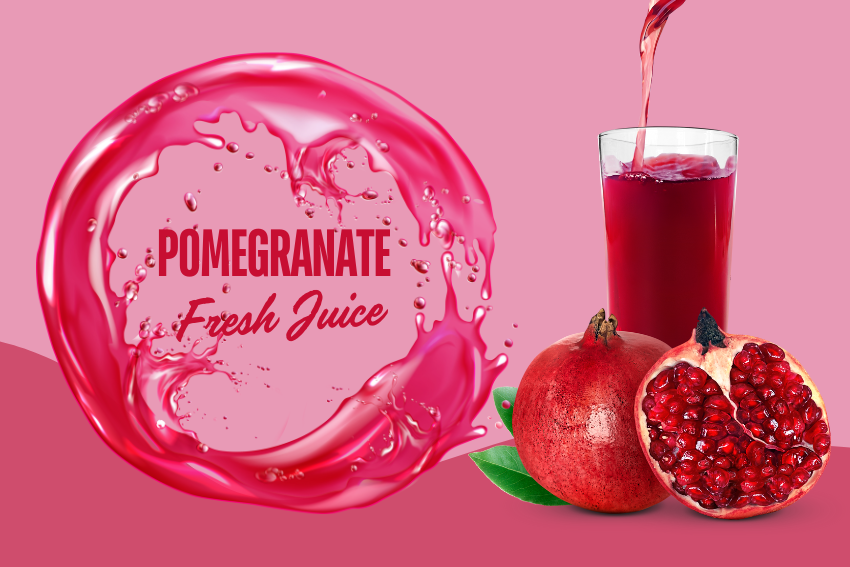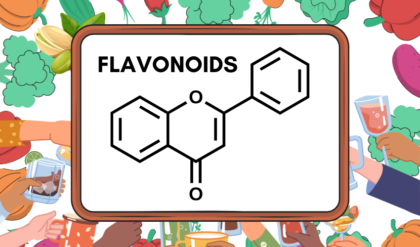The Ultimate Guide to Pomegranate Juice
Pomegranate juice. Bright red, sour and rich in taste. It’s not just a refreshing drink; it has been labelled a superfood, a health elixir, even a miracle juice. But what’s the real story? Is it as good as the hype? So, are there negatives to savoring this ruby-red fluid? Without further ado, let us get started, discuss positives, and consider the possible downsides. At the end, you will have an idea as to whether pomegranate juice is something you store in your fridge.

What’s So Special About Pomegranate Juice?
Pomegranates were known centuries ago. In old cultures, they worshiped them as symbols of fertility and abundance. Nowadays, science is finally catching up: the juice of those tiny, jewel-like seeds (they are called arils) is full of nutrients. Think of vitamins, antioxidants, and even things that might give your body a little boost.
That juice is extracted from pressing those seeds; the liquid obtained is sharp and somewhat sweet at the same time. It is not only delicious; it is full of stuff good for you. But it’s not a cure-all. Let us take stock of what it can do and where it might fail.
The Benefits of Pomegranate Juice
There are so many things going for the juice form the pomegranate. Certain pretty awesome health benefits are supported in the research. Here’s what the science says.
Bursting with Antioxidants
Pomegranates are antioxidant powerhouses. Antioxidants? They’re little bodyguards, warding-off bad molecules called free radicals. Such free radicals may injure cells causing aging and diseases. Pomegranate juice contains more antioxidants as compared to red wine or green tea. Pretty impressive, right?
The main characters in this case are punicalagins and anthocyanins. These compounds are what make the juice so colorful and help save your body. Research suggests that they could decrease inflammation, which is associated with all kinds of ailments, such as arthritis, coronary heart disease and so on.
Heart Health Hero
The pomegranate juice may be the best thing for your heart. According to research, it can help an individual to have a good heart in several ways. First, it can decrease the pressure of blood. A report said that drinking pomegranate juice on a daily basis resulted in a reduction of blood pressure levels following a few weeks. Not a bad drink for a glass of juice!
It may also prevent clogging of arteries. Pomegranate juice can help reduce plague formation which blocks arteries and increases risks of having heart attacks. Moreover, it increases the levels of nitric oxide, the compound responsible for the blood vessels’ relaxation and increased blood flow. Lesser waves on the heart are a better blood flow hence a happier heart.
A Boost for Your Brain
Want to keep your mind working? Pomegranate juice might help. Its antioxidants can be protective to brain cells from damage. According to some, it may increase memory, particularly in older people. In one small study, individuals with slight memory problems who took pomegranate juice every day after a month were able to remember better.
It is not a cure-all, implying an Alzheimer’s or dementia cure, but it could provide a bit of help to the brain. Consider it a delightful way to be all mentally here.
Fighting Inflammation
Inflammation is the reaction by the body to stress or injury. But too much of it? That’s trouble. Chronic inflammations are associated with such conditions as diabetes, cancer, and heart disease. Pomegranate juice’s antioxidants can be useful to bring things down.
In a study, it was found those patients with type 2 diabetes who took the pomegranate juice showed decreased levels of inflammatory markers. Fewer inflammations could translate to fewer problems in the future. It is as if you were giving your body the chance to take it easy.
Potential Cancer Fighter
This one is also just at its first steps, but it is exciting. Some laboratory tests indicate that pomegranate juice could inhibit the process of the growth of some cancer cells including prostate and breast cancer cells. The antioxidants and other constituents appear to have the potential of interfering with the growth and spread of cancer cells.
For instance, in a study carried out on prostate cancer cells, it was proven that pomegranate extract reduced the growth of these cells. Another study established that it may reduce tumor in animals. But here’s the catch: Most of these studies are carried in test tubes or animals, not humans. Therefore, while it is promising, do not expect pomegranate juice as a cancer cure-all so soon.
Good for Your Gut
Maybe your digestive system can love pomegranate juice as well. It has compounds which act as prebiotics and feed the good bacteria in your gut. A healthy gut is a good digestion, stronger immunity and even a happier mood.
Other research indicates that drinking pomegranate juice may be helpful with conditions such as ulcerative colitis as it will reduce the inflammation of the gut. If your stomach has been complaining, a glassful of this juice may be worth its weight in gold.
Boosts Exercise Performance
Athletes, listen up. Pomegranate juice would give you an edge. Its antioxidants can alleviate the muscle soreness and the recovery after exercise will be faster. Research revealed that the runners that drank pomegranate juice had less muscle damage after strenuous exercises.
It might also improve endurance. Pomegranate juice contains nitrates that can enhance the delivery of oxygen to muscles, so that you can exert yourself more and for longer. So, next time you hit the gym, maybe swap that energy drink for some pomegranate juice.
Packed with Nutrients
Pomegranate juice is more than a matter of antioxidants. It has vitamins and minerals as well. One cup contains (about 8 ounces):
- Vitamin C for immune support.
- Vitamin K for healthy blood clotting.
- Folate for cell growth.
- Potassium for muscle and heart health.
It’s like a nutrient-packed punch in every sip. Just don’t expect it to replace your daily multivitamin.
The Flip Side: Potential Side Effects
Pomegranate juice just sounds delicious but, not ideal for everybody. Like anything, it has downsides. Here are the things to watch out for.
High in Sugar
Pomegranate juice is naturally sweet – but there is a catch in it: sugar. Up to 30 grams of sugar can be in one cup. That is almost like a soda! This could be a problem to people who are monitoring their sugar intake or suffering from diabetes.
The sugar is not added but it is natural yet it still increases the blood sugar levels. Talk to your doctor first if you are a diabetic before using the pomegranate juice on a daily basis. You may have to take small portions or dilute it in water.
Calorie Count
Along with sugar comes calories. As much as 130 to 150 calories may be contained in a cup of the pomegranate juice. That’s not much but it can have an effect if you drink it every day. Those calories could sneak up on you if you are trying to lose weight. Moderation is key.
Medication Interactions
This one’s important. Pomegranate juice can interfere with some drugs. It has the same effect as the grapefruit juice, which interferes with the way through which your body handles drugs. This can reduce the effectiveness of some meds and even enhance the side effects of some of them.
For example, it might interact with:
- Blood thinners like warfarin
- Blood pressure meds
- Statins for cholesterol
If you are on any medications, consult your doctor or pharmacist first before taking pomegranate juice on frequent basis. Better safe than sorry.
Allergic Reactions
Allergies to pomegranate are very rare though it happens. Some of the affected people may develop itchy skin, swellings or even breathing difficulties after taking the juice. Should you observe peculiar symptoms, stop taking it and go to the doctor.
Tooth Enamel Damage
Pomegranate juice is acidic. With time, that acidity can eat away at tooth enamel, especially if you drink it frequently or sip on it. In order to protect your teeth, attempt to drink it via a straw and then rinse your mouth with water.
Digestive Upset
Some may experience stomach problems when they consume pomegranate juice. An excessive consumption of it can cause diarrhea or an upset stomach, especially if you’re not accustomed to it. Begin with small glass and observe how your body will behave.
How to Enjoy Pomegranate Juice Safely
Desire to include the pomegranate juice into your diet? Here is how to do it correctly:
- Stick to moderation. A little glass (4-8 ounces) a day is enough.
- Choose pure juice. Seek out pure artesian 100% pomegranate juice without any added sugars and fillers. Some brands mix it with cheaper juices whereby the benefits are diluted.
- Dilute it. Blend with water or with sparkling water to reduce sugar and calories.
- Pair it with food. It should also be consumed with a meal to stabilize blood sugar.
- Check with your doctor. If you are on med certifications or you have health issues, take the green light first.
Fresh vs. Store-Bought: What’s Better?
To make the pomegranate juice at home, you have to blend the seeds and separate the pulp. It is new, yet it is a pain. Store-bought is a time saver but not so good when it comes to quality. Read the contents of labels to make sure it is pure juice without sugar additions / preservatives. Whereas, organic options may contain less pesticides, they are more expensive.
If you’re up for it, fresh juice delivers all the nutrients to maximum. However, a decent store-bought version will do for most people.
Fun Ways to Use Pomegranate Juice
Drinking of pomegranate juice is not the only thing. Get creative! Try these ideas:
- Smoothies: Combine it with berries, yoghurt and a banana to pack it with nutrients.
- Salad dressing: Combine with olive oil, vinegar and some herbs for a sour dressing.
- Mocktails: Add sparkling water and a splash of lime to get a refreshing spritzer.
- Sauces: Simmer it down on the stove for a sweet-tart glaze for your meats or veggies.
The Bottom Line
Pomegranate juice is a nutrition gem. It is full of antioxidants and good for the heart and it may even help your brain. Not only to fight inflammation but even to support your gut, it has a lot to provide. But it’s not perfect. Sugar content, calories, and drugs interaction simply means that you’ll have to be smart about how you take it.
Therefore, is it something that you should eat in your diet? If you like the taste and you do not have health issues which will make it risky, then go ahead. Just stick to a small glass per day, go with pure juice and consult with your doctor if you’re on medication. It’s no miracle cure, but it’s a yummy way of adding a bit of love to your body.
Pomegranate juice. It is not just a drink – it is a little step to better health. Wisdom with sip, enjoy the benefits.





